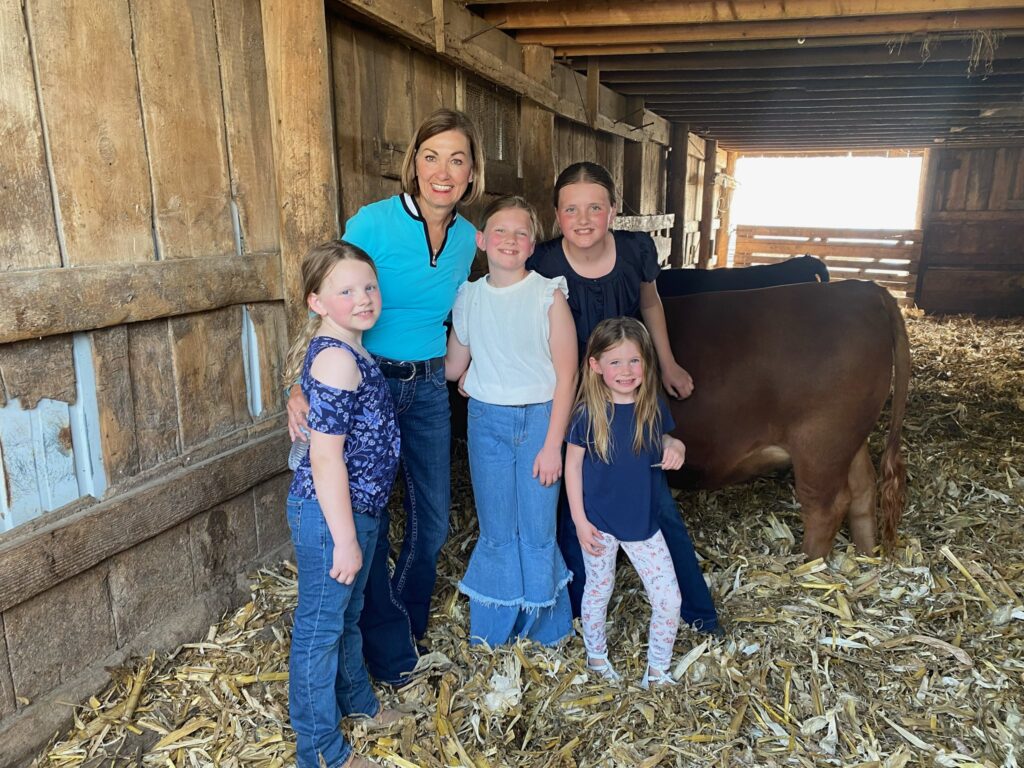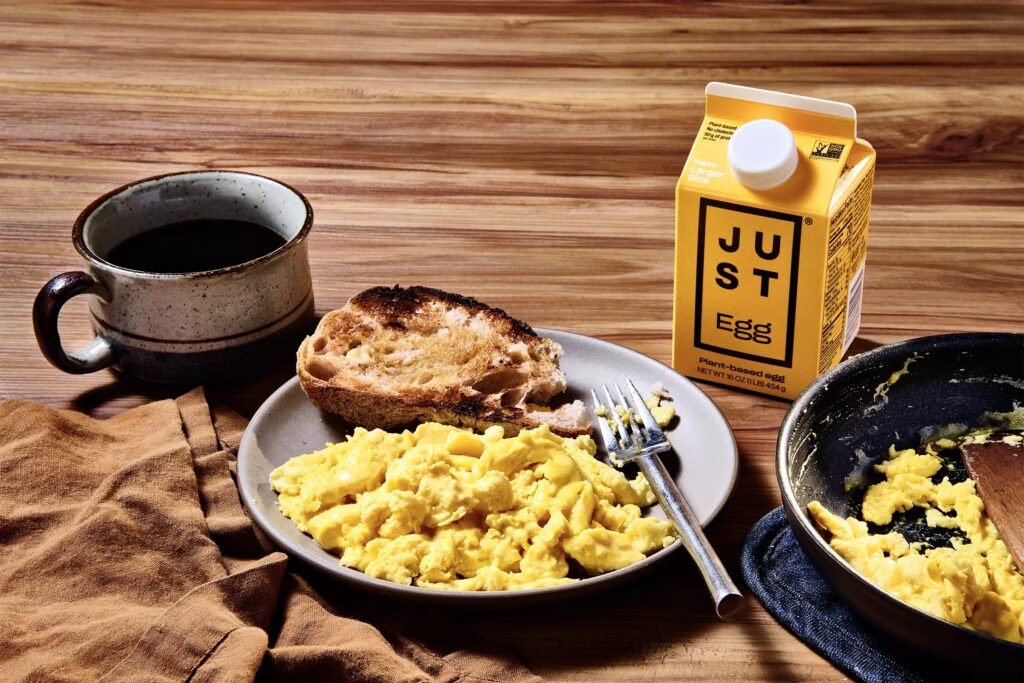Iowa Restricts Labelling & SNAP Purchases of Meat and Egg Alternatives – and Extends Tax Break for Livestock
5 Mins Read
Iowa governor Kim Reynolds has just signed a bill that restricts the labelling of meat and egg alternatives, as well as excludes them from federal food assistance programmes.
Plant-based and cultivated meat and eggs are now subject to stricter labelling regulations in Iowa, after its governor Kim Reynolds signed SF 2391 into law. It makes the state the latest to impose restrictions on the labelling of alternative proteins, adding many qualifying terms to a list of phrases that will now need approval by the government to be added to product labels.
But perhaps more concerning is a stipulation that prohibits people from buying meat and egg analogues through federal food assistance programmes like the Supplemental Nutrition Assistance Program (SNAP) for low-income families or the Special Supplemental Nutrition Program for Women, Infants, and Children (WIC).
Meanwhile, a second bill signed by Reynolds extends a tax break for livestock producers who sell certain animals for breeding, which is expected to save them nearly $18M by 2030. “Today, we protect Iowa’s livestock industry for future generations,” she said.
The same farmers were warned of health risks by a public health expert last year for working in concentrated animal feeding operations (CAFOs), which have caused life-threatening illnesses and contaminated the drinking water due to nitrate pollution in the state. This has meant that Iowans will spend $333M to treat their water over the next five years, and up to $167.5M to address the health impact.
Yet, Iowa is doubling down on its CAFOs – last year, more than 250 of the 288 large livestock operations constructed in the US were in Iowa, according to the EPA.
An ‘unnecessary’ and ‘disparaging’ bill

The bill is far from the only legislation in the US that prohibits the use of meat-related terms on plant-based alternatives – many states have done (or are attempting to do) the same. But imposing these restrictions on eggs isn’t as common, and perhaps a sign that the industry is slowly encroaching upon the chicken sector’s market share.
“This legislation prohibits companies from exploiting the trust consumers have with our livestock producers and misleading consumers into buying products they don’t want. This is about transparency,” said Reynolds. “It’s about the common-sense idea that a product labelled chicken, beef, or pork, should actually come from an animal.”
Under the law, anyone misbranding “fabricated egg products” or a plant-based, cultivated or insect protein faces a fine of up to $500, with each day that the violation occurs constituting a separate offence (the maximum limit for the penalty is $10,000).
Dawn Driscoll, a Republican senator and cattle farmer, labelled it a “meat integrity” law. “Consumers deserve the truthful labelling on products, and our children deserve better than lab-grown protein,” she said.
In response, the Precision Fermentation Alliance (PFA) – a trade group comprising 10 alternative protein startups – called the bill “unnecessary and duplicative of federal laws”. “Under current federal law, foods that do not meet an established standard of identity must be clearly labelled with appropriate qualifying terms so that consumers understand the nature of the foods they purchase,” it said in a statement.
“SF 2391’s use of ‘fake’ and ‘imitation’ as the lead qualifying terms is inflammatory and disparaging to a wide category of foods that American consumers both understand and want access to.”
Iowa restricts access to alt-protein to those in need

Restricting labels is one thing, but an amendment in the bill’s passage through the government committees means the state’s residents cannot use programmes like SNAP or WIC to buy these foods. It’s an abhorrent use of legislation that blocks people on low incomes, women and children in need from accessing healthier, more sustainable food options, and mocks their freedom to choose what they want to eat – all to line up the pockets of an industry that is destroying the planet.
If the USDA approves the purchase of meat or egg analogues under one of these programmes, the new law directs the Iowa Department of Health and Human Services to seek a waiver or exemption for people to buy these products under the nutrition assistance schemes. The bill completely disregards any concerns about meat or egg allergies – Iowans who suffer from these conditions are left in limbo.
“Perhaps USDA will turn down the waiver request and things will be different, but it’s just bad legislation,” outlined House representative Monica Kurth, who said the bill takes away the rights of people dependent on SNAP or WIC. Last month, the USDA updated its WIC provisions to include plant-based milk, yoghurt and cheese, a move that recognised the importance of alternative proteins.
“Let’s protect our people that need help,” added fellow representative Ako Abdul-Samad. “Let’s protect the babies that can’t eat eggs. Let’s not make it hard on our people. Why are we making it hard on people that we’re trying to help in Iowa?”
“This law arbitrarily limits access to safe, nutritious foods through programs such as SNAP and WIC. Restricting consumer choice hurts both American consumers and the industries that employ them, whether at the silo or the many food processing facilities in the Midwest and beyond,” the PFA said. “This law is part of a troubling emerging trend of state legislation artificially constraining the free market and stifling the greatness of American innovation. This is particularly unfortunate today at a time when supply chain disruptions and persistent inflation are putting pressure on consumers’ pocketbooks.”
At the signing of the bill, House representative Heather Hora took a shot at cultivated meat too. “Iowa’s farm families work hard every day to bring nutritious red meat to the market. Lab-grown products are not the same as high-quality pork or beef or other meats raised by Iowa farm families and consumers deserve truthful, transparent labeling on products.”
It comes the same month Florida and Alabama banned the production and sale of cultivated meat within state borders. Iowa’s bill, which disproportionally affects vulnerable people, is the latest in a heightening trend of legislative meat-hugging that’s dampening the future of food ahead of this year’s elections. Let’s hope it doesn’t catch on.



